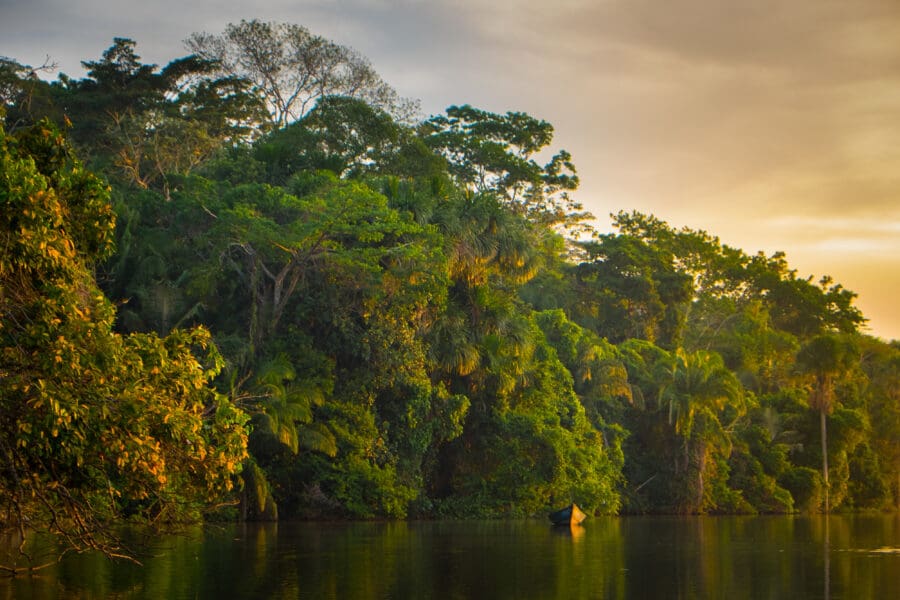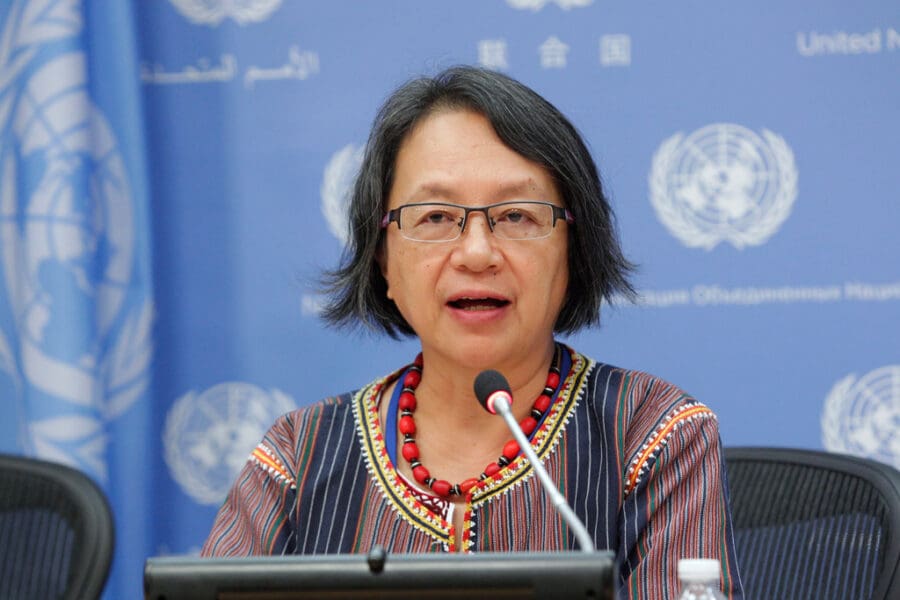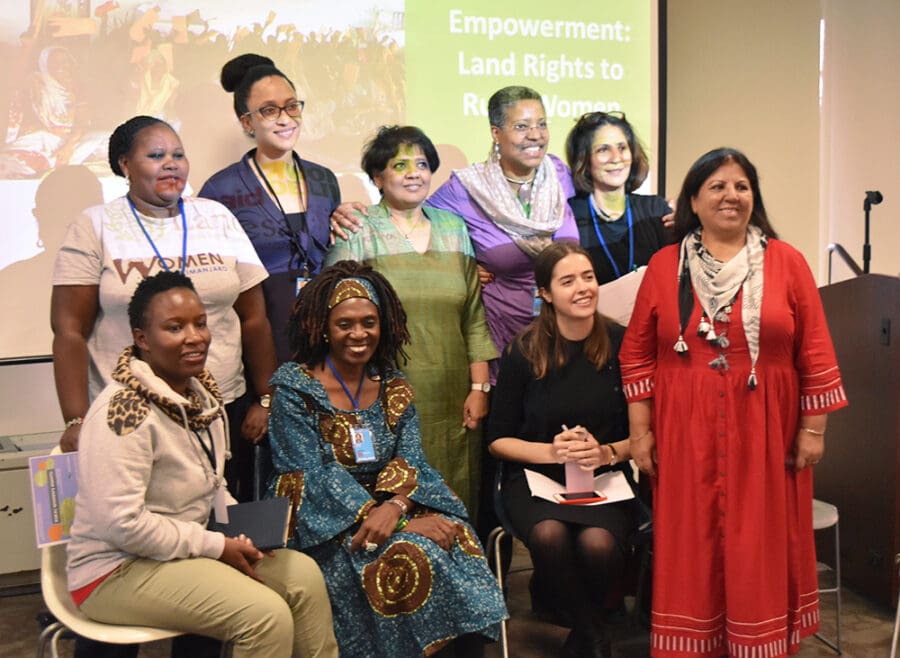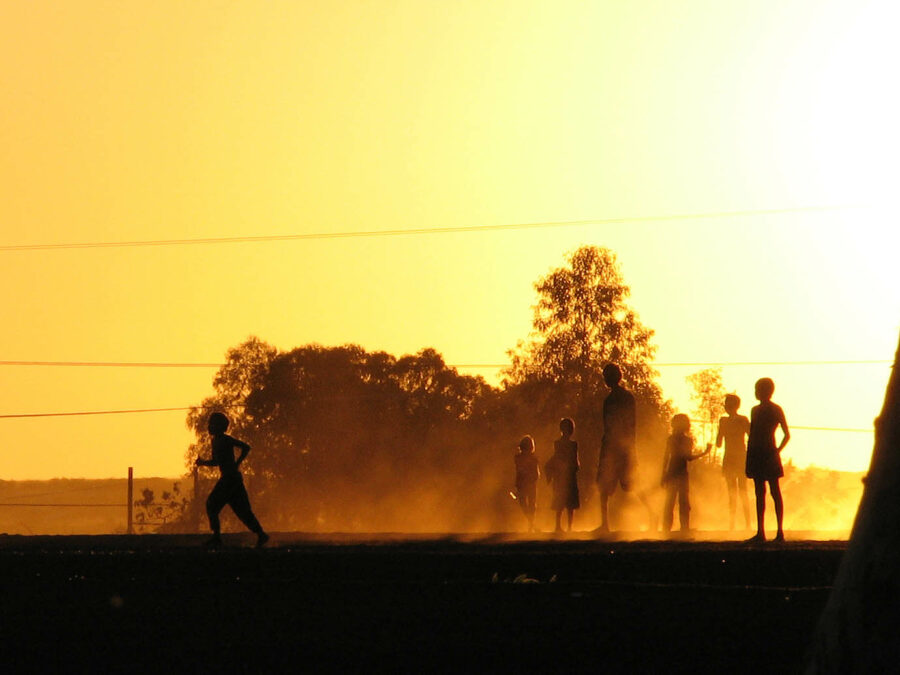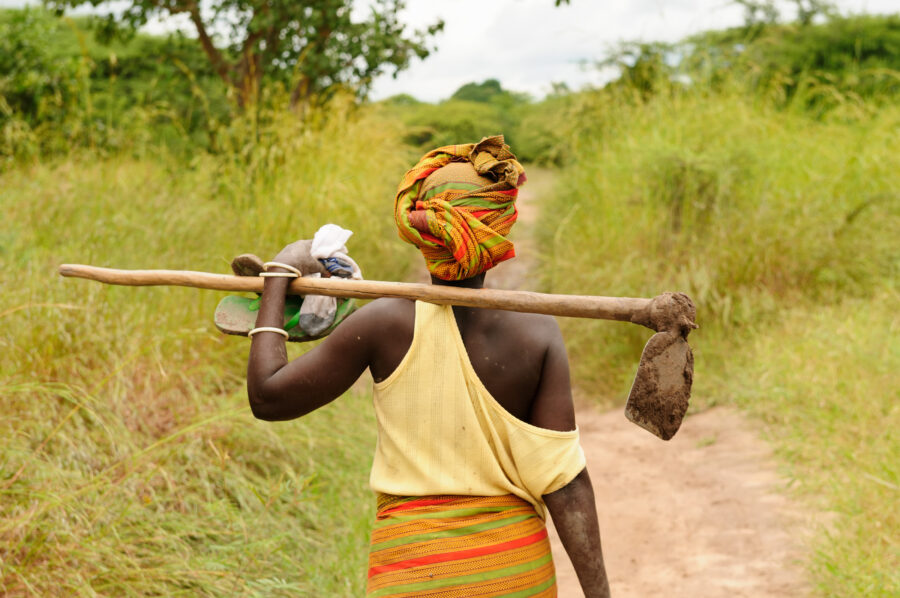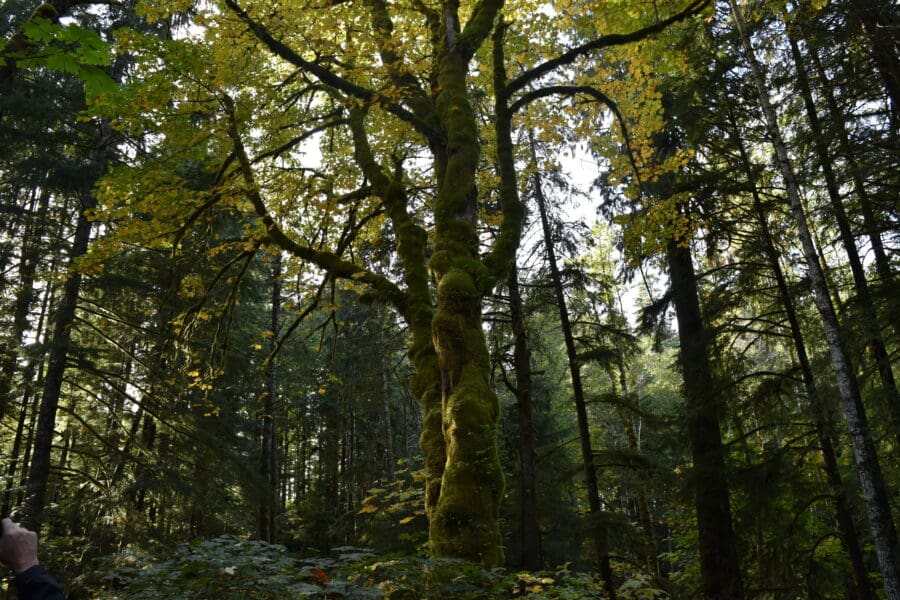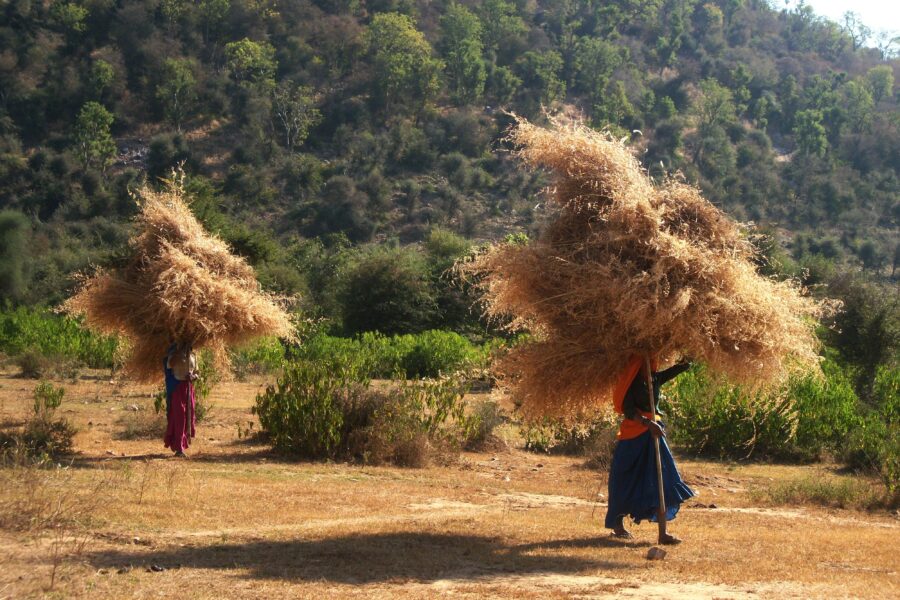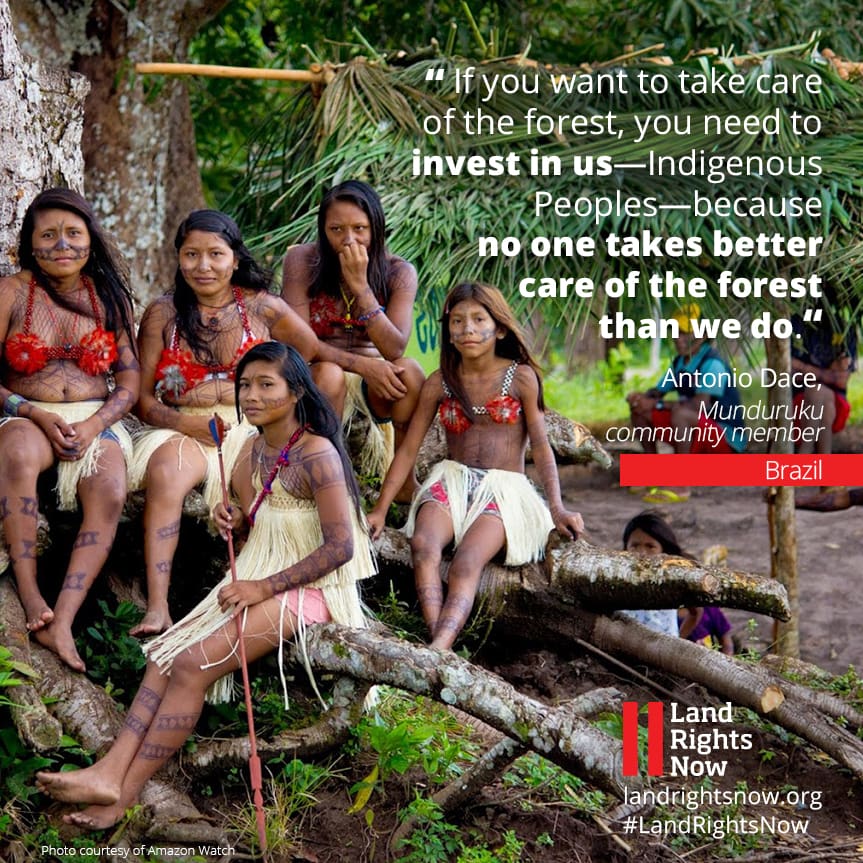Washington DC-based Rights and Resources Initiative has done a wonderful job of collating dozens of studies that show that indigenous people and other forest-dependent groups have been effective stewards of forests and biodiversity in hundreds of sites throughout the world.
The RRI is a global network advocating for the land and forest rights of Indigenous peoples and local communities. As the RRI’s coordinator, Andy White travels the world, meeting with Indigenous and community leaders, governments and civil society organizations to discuss how local communities’ rights to the forest can be advanced. Here, as part of an ongoing review of community rights to forested lands and key conditions for success led by Tropenbos International, he talks about recent progress and challenges and the role that civil society organizations can play to help people claim their rights as a step toward locally-led sustainable development.
The Rights and Resources Initiative Coalition mourns the loss of one of our planet’s brightest, most dedicated champions.
As world leaders gather in Poland this week to hold a critical dialogue on the UN Framework Convention on Climate Change (UNFCCC), the world’s tropical forests ought to take center stage. The ambitious pledge of the Paris Agreement will be virtually unattainable if the world’s remaining tropical forests are not safeguarded.
The theme of this year’s UN Permanent Forum on Indigenous Issues was “Indigenous Peoples’ collective rights to lands, territories, and resources.” Indigenous leaders from across the globe noted the crucial role that secure rights play in their lives and livelihoods, and in the advancement of sustainable development and climate change mitigation.
Pressures from climate change have worsened poverty, food insecurity, human trafficking, and child marriage, activists argue. For a long time, says Ms. Bandiaky-Badji, people have focused on rural and indigenous women “as victims.”
More than 4,300 civil society representatives from 130 countries participated this March in the 62nd Commission on the Status of Women (CSW62)—which focused this year on rural women and girls. Although the Agreed Conclusions adopted by all CSW Member States fell short of what advocates were pushing for, they still represent a shared commitment toward respecting the rights of indigenous and rural women.
We asked six experts about the biggest opportunities, moments, and potential catalysts for change they see for community land rights in 2018. Here’s what they had to say.
The creation of platforms to acknowledge and address the role of Indigenous Peoples, local communities, and rural women may represent a crucial step toward addressing the disparity between the lands Indigenous Peoples and communities protect and depend on and the legal recognition of their rights. These communities will have a formal platform at future climate talks to exchange knowledge, influence policy, and press for recognition of their rights before world leaders.
Big transformations are coming to the world of forestry, a sector generally known for being conservative and slow to change.
Land stakeholders have stepped up resource mobilization efforts to strengthen land rights and tenure governance globally, through the launch of the International Land and Forest Tenure Facility (the Tenure Facility) and preparations for the ‘Land 2030 Global Initiative’.
Released at major land rights event in Stockholm, new research reveals that respecting rights of Indigenous Peoples and local communities—not forcing them off their lands—slashes…
Tomorrow, October 4, participants from 65 countries—including representatives from Indigenous Peoples, local communities, women’s groups, governments, NGOs, civil society, multilateral banks, and the private sector—are convening in…
Despite growing international commitments to gender equity, there remains a persistent gender gap in women’s political representation, particularly in poor rural and indigenous communities.
The US government has failed to adequately consult with Indigenous Peoples and gain their consent for extraction, energy, and infrastructure projects on their lands, the UN Special Rapporteur on the Rights of Indigenous Peoples, Victoria Tauli-Corpuz, said in a press release.
Community advocates in Brazil, Guatemala, Kenya, Taiwan, and 21 other countries call on governments, private sector to recognise that secure land rights are vital to the global struggle against climate change
The assassination of Berta Cáceres, underscored the vulnerability of indigenous leaders, and in particular indigenous women leaders, who face violence and criminalization for defending their communities’ lands and livelihoods. A year later, the targeting of land rights defenders continues.
Amid last year’s political shocks and challenges to the primacy of human rights, one consistent and inspiring global trend emerges: the growing recognition that the land rights of Indigenous Peoples and local communities are key to ensuring peace and prosperity.
A new report authored by the Rights and Resources Initiative (RRI), Woods Hole Research Center (WHRC), and World Resources Institute (WRI) shows that at least…
A new RRI analysis reveals that secure tenure for Indigenous Peoples and local communities—a key climate change mitigation strategy—is notably absent from the Paris Agreement…
Data on customary lands of local communities is crucial to advocacy, securing legal recognition of land and resource rights, and measuring global progress.
Honolulu (AFP) – Some of the world’s leading conservation groups are violating the rights of indigenous people by backing projects that oust them from their…
HONOLULU — Conservation organizations dedicated to protecting the world’s biodiversity hot spots often fail to take into account why the forests are still standing. Often,…
NGOs call on governments to act to save people and planet Indigenous Peoples and local communities protect half the world’s land, but formally own just…




